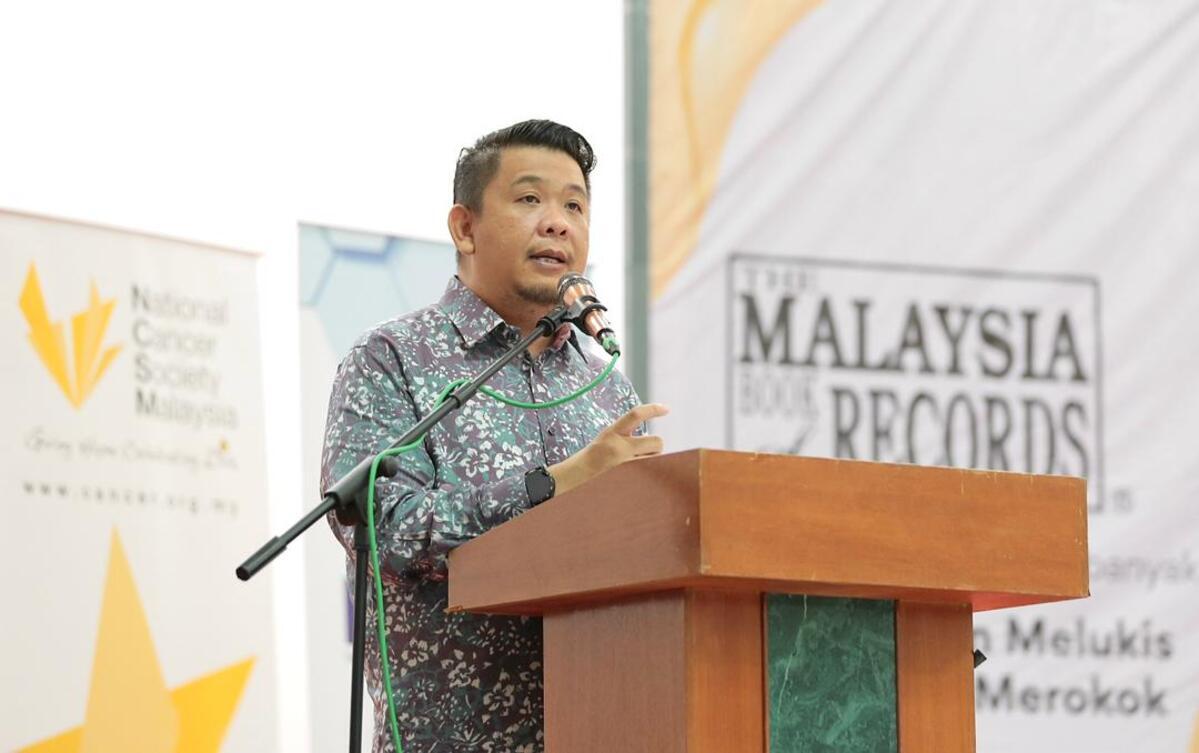KUALA LUMPUR, June 21 – Some MPs reportedly believe that the RM500 fine in the 2023 tobacco bill for the generational end game (GEG) group for smoking or vaping is too low.
The Control of Smoking Products for Public Health Bill 2023 proposes an RM500 fine or community service for the GEG group (those born from 2007) that is banned from smoking or vaping, based on recommendations from a parliamentary special select committee (PSSC) from the 14th Parliament in response to concerns that the initial RM5,000 fine in the Control of Tobacco Product and Smoking Bill 2022 was excessive.
“Among the issues raised [among MPs] related to the compound that is too low – only RM500 as decided by the previous select committee – compared to the original proposal of RM5,000,” Deputy Health Minister Lukanisman Awang Sauni told the Dewan Negara during Question Time today.
Lukanisman was responding to a supplementary question from Senator Lim Pay Hen, who had asked the deputy minister about the main concerns that had forced the referral of the 2023 tobacco bill to the Health PSSC after first reading in the Dewan Rakyat last June 12, despite the declassification of liquid nicotine from the Poisons Act 1952 last March 31. As a result, vape and e-cigarettes with nicotine remain legally accessible to minors below 18.
The Sibuti MP noted that smoking offences under current tobacco control regulations under the Food Act 1983 – which do not cover vape or e-cigarettes – are punishable with an RM1,000 fine.
“Besides that, there were a few issues [raised] in relation to the implementation of community service.”
Lukanisman added that some MPs disagreed with the Ministry of Health’s (MOH) proposal to delay prohibitions on vape, e-cigarettes, and heated tobacco products for anyone born from 2007, compared to immediate bans on conventional cigarettes for this cohort.
“Some MPs feel there is a need to implement the generational end game simultaneously, but the MOH had suggested conducting reviews before implementation [of the vape ban] from 2027.”
The Control of Smoking Products for Public Health Bill includes a clause for mandatory reviews on the GEG bans (sale and use), as well as on the impact of the use of e-cigarettes, that are to be tabled before January 2025 (before the GEG cohort reaches the age of 18) and every five years in both Houses of Parliament.
“The issue of vaping is very critical – data and statistics show that vaping prevalence, even among women, is rising. So we need a bill that is the best chance for us to impose controls.
“However, we ask for an end to engagement sessions – we just need a little more time to retable it and bring it back to Parliament and we hope for bipartisan support in the House on this tobacco and vape product control bill,” Lukanisman said.
The unity government controls nearly two-thirds of the Dewan Rakyat. Government bills are routinely passed by the Lower House in a matter of days, which makes the government’s move to refer the tobacco bill to a PSSC, even before tabling it for debate, unprecedented.







